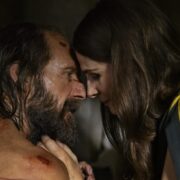Cannes 2018 Days 1 & 2: Birds, Wars & LGBT Romances
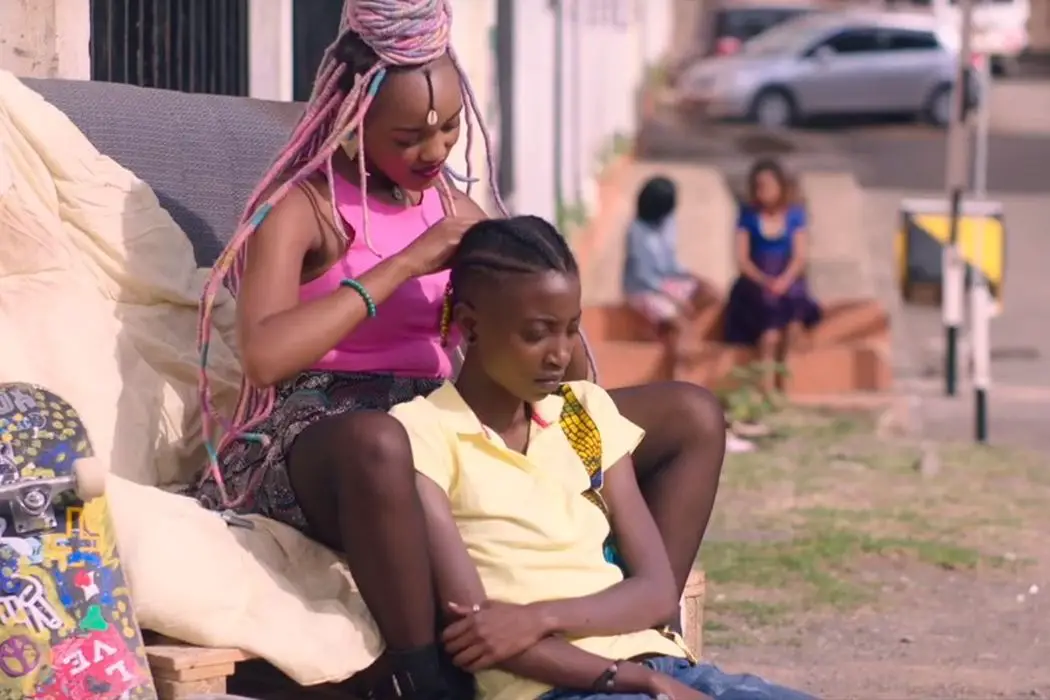
Gus is a 3rd year English Lit and Creative Writing…
Somehow, through blood, tears and a very cheap AirBnB accommodation, I’ve managed to find myself in Cannes. Everything you’ve heard about the festival is true: the queues have queues, the crowds have crowds, and, now that sleep is a rare commodity, my bags have bags. The difficulty of wading through the Croisette is only trumped by how confusing everything inside the Palais des Festivals is, and wrapping your head around the film selection and scheduling is a good shortcut to a mental breakdown.
But yes, somehow I’m in Cannes, and haven’t got lost to any of my screenings yet. Armed with a stack of business cards, a pen, and my trusty yellow press pass (lowest ranking, but who cares when the colour matches your shirt?), I will be sitting on my ass staring at a screen for 12 days, for my viewing and your reading pleasure. As the French say in English, let the festivities commence!
Everybody Knows (Asghar Farhadi)
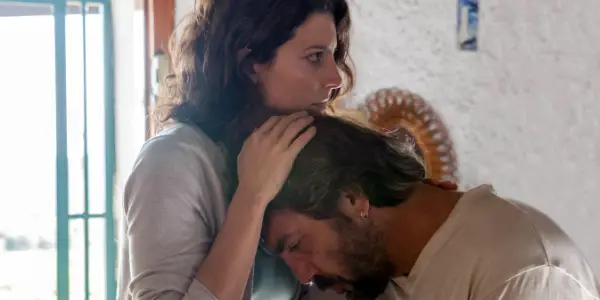
I wrote a full review on Farhadi’s latest, which you can read here.
Rafiki (Wanuri Kahiu)

I can handle bad films, and I can handle boring ones too (with such a dense Cannes schedule lined-up, they’ll give me a chance to catch up on some desperately-needed sleep), but there’s nothing worse than a film that you want to succeed ending up as a crushing disappointment. Rafiki, a Kenyan lesbian romance that was banned in its home country for ‘seeking to normalise homosexuality’ is a vital film that acts as a landmark in LGBT cinema, but it’s also crudely made, with a by-the-numbers structure that hinders the colourful African setting.
The daughters of two rival politicians hastily fall for one another (all goggle-eyed faces and luvvy-duvvy music to make up for the lack of actual character development). With a quickfire runtime of 82 minutes, this sense of rushing the chemistry was always going to be a problem, but doing away with the politician aspect altogether would make things easier – while also getting rid of a needless conflict that only gets in the way of the inherent obstacle of homosexuality in a society that blames such traits on demons.
Their arcs hardly tread new ground, but at least the Kenyan backdrop offers something different: shots of fried pancakes or neon face paint add texture to a script sorely lacking in originality. Unfortunately, these first-time actors are hampered with humdrum dialogue that spell out basic themes or exaggerated homophobic slants. An important film, if not necessarily a good one.
Donbass (Sergei Loznitsa)
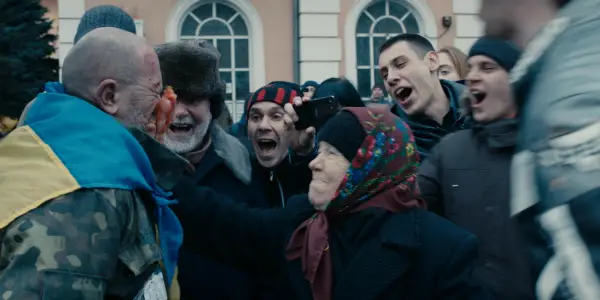
Sergei Loznitsa’s wild follow-up to A Gentle Creature sees the rising conflict between Russian and Ukrainian forces carried out through a scathing anthological narrative. The precise details of the events flew over my head – if you’re not well-versed in your knowledge of the war, then don’t expect to have everything answered for you – but as a deconstruction of war itself, Donbass is terrific.
Flirting with farce – though in a war-strewn hellscape where citizens have lost their humanity, it may as well be hauntingly real – and playing out like a Roy Andersson picture that has decided to come out of comatose, we see a makeup studio give way to propagandist footage, a woman walking into the rotting dumps of a bunker looking like a catwalk model, a coked-up nationalist wedding, and many more shocking images – including a sequence in which a fascist firing squad volunteer is tied to a pole and beaten senseless by a hoard of desperate civilians.
It’s brutal stuff, constantly gripping even if it over-extends itself a little; a visit to a hospital beats its message into a senseless lull, and that wedding – while horrifying to watch unfold – does test the patience. But Loznitsa’s formal expertise is astonishing, as fragments seamlessly segue into one another through various long-takes, its examination of the effects of war on a populus substantiated and complicated as each narrative strand takes hold.
Birds of Passage (Ciro Guerra & Cristina Gallego)
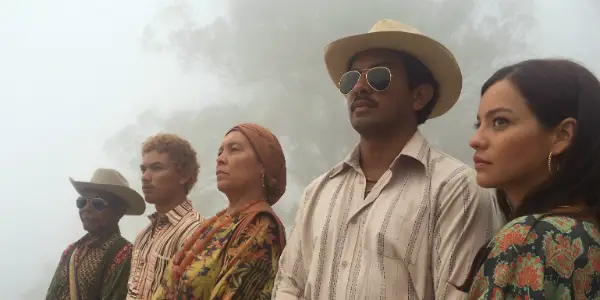
Ciro Guerra’s Embrace of the Serpent is, for my money, one of the greatest films of the decade, and here he teams up with fellow Colombian filmmaker Cristina Gallego and continues his fascination with tribal tradition juxtaposed with capitalist values and modernisation – now applied to a sprawling, gun-toting epic that recalls The Godfather or The Raid 2 in its spruced-up take on gang warfare.
Rapayet (José Acosta), a member of an indigenous Wayuu family, gets himself involved in the marijuana trade. His unassuming business inevitably becomes an empire, and here he has to balance the Wayuu way of living with the growing demands of his buyers. Vibrant garments are juxtaposed with gold Rolexes, burial grounds are used as hiding spots for drugs, and at one point, Rapayet and his wife, Nadia (Natalia Reyes), forsake their decadent gold-laced double bed for a hammock.
Dream sequences, meanwhile, appear as afterthoughts, and the complex, winding narrative leaves little room for elaborating on those titular winged creatures; towards its endpoint, too, the narrative feels less cohesive and more like a series of checkpoints. But this remains an admirable, surprising accompanying piece to Guerra’s magnum opus, contemplatively examining the progression (or regression) of an indigenous tribe that’s finding it difficult to withstand the harsh capitalist climate.
Wildlife (Paul Dano)

Paul Dano’s directorial debut is an assured study of the exploits of self-destructive parents (played by Carey Mulligan and Jake Gyllenhaal), whose tensely defined discourse spreads like wildfire and threatens to engulf their son, Joe (Ed Oxenbould), along with them.
Set in the 60s for no discernible reason, Gyllenhaal is fired from his job as a golf club assistant before promptly being asked back. His family need the money desperately, but he refuses out of pride; cue a series of misjudgements and the prising out of character flaws from both parents that take up the remainder of the story – Joe, who’s our eyepiece, is left as an unwilling passenger, helpless to stop their dwindling marriage.
It’s not necessarily new ground, but Dano effortlessly builds on this potent premise; irrational decision-making is difficult to get right – go too far and you risk foregoing plausibility – but each character feels real, complex, and easy to empathise with in spite of their many flaws. The camera, too, is wielded with intention; glued to Joe’s face as his parent’s shouting matches form background noise – it’s no coincidence that the same technique is used when he stares in the face of a forest fire. This is an astonishingly confident debut, and a heartbreaking tale of two parents at war, and their son caught in the gunfire.
To the Ends of the World (Guillaume Nicloux)
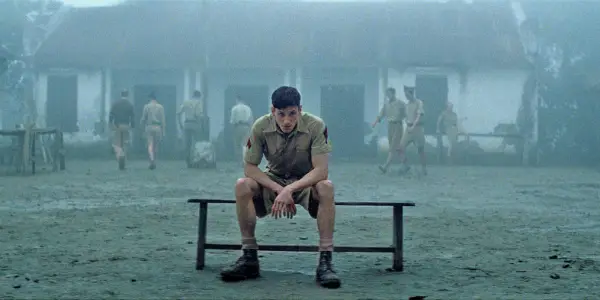
Set in the festering jungle climate of 1940s Vietnam, in which occupying French troops sag at the seams, Guillaume Nicloux has created a provocative and impressionist war film that sees Gaspard Ulliel’s Robert Tassen strive to seek revenge on an unseen Viet Minh commander named Vo Binh, responsible for the gruesome death of his brother.
Of course, exacting revenge won’t be easy, and Ulliel battles through wounds and mud to find his purpose – his body may be resilient, but it’s clear that his mind is gradually slipping away. There’s something about his gaunt shell-shock appearance that musters up the phantom of Freddie Quell, and the narrative itself is if The Lost City of Z grew unhinged and untidy. It’s beautifully shot, lush green vistas consuming the screen, and sound design is equally immersive.
But the film ultimately rests on Ulliel’s shoulders; he’s been unconvincing in the past (see: Eva), but here he’s the perfect choice for a man slowly succumbing to his inner demons. Sure, Nicloux often goes a little too far with his deliberate provocation (excessive gore shocks until it just dulls the senses, while in one scene, there’s a close-up of a leech-infested penis), and a subplot involving a Vietnamese prostitute isn’t quite fleshed out enough beyond being a mere vehicle for Ulliel’s feverish temperament, but this is brave, exciting filmmaking, and a fine amuse bouche to Apocalypse Now’s meatier take on the same subject matter.
Sorry Angel (Christophe Honoré)
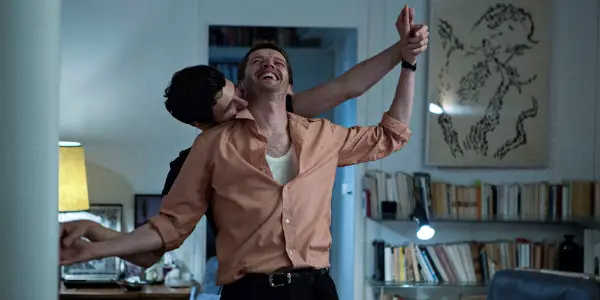
Essentially a companion piece to 120 BPM, Honoré’s meandering Sorry Angel is a pleasant, quick-witted gay romance, if ultimately insubstantial. Renowned writer Jacques (Pierre Deladonchamps) eyes a bisexual student, Arthur (Vincent Lacoste – bearing uncanny resemblance to Timothee Chalamet), from across a cinema aisle. Their flirtatious repartee leads to bedroom antics and the promise of further exploits; though Sorry Angel bounces around impatiently, keen to transition from one moment to the next – their romance, therefore, comes across a little disjointed.
No matter – thrilling pin drops and engaging conversation are enough to tide over the erraticism, and Jacques’ neighbour, Mathieu (Denis Podalydès) restrains the writer’s often tiresome defeatism well. Sorry Angel has all the restless energy of 120 BPM, even if it is considerably more aimless.
Honoré’s film works best when it focuses on the relationship between Jacques and an AIDS-stricken former lover named Marco (Thomas Gonzalez); a scene in a bathtub that symbolises the end of that particular strand is overwhelmingly moving. But too much time is afforded to philosophical ponderings and well-worn tragi-romance arcs, leading to a baggy runtime – Sorry Angel’s energy is infectious, until it’s just enervating.
Does content like this matter to you?
Become a Member and support film journalism. Unlock access to all of Film Inquiry`s great articles. Join a community of like-minded readers who are passionate about cinema - get access to our private members Network, give back to independent filmmakers, and more.
Gus is a 3rd year English Lit and Creative Writing student who loves everything film and still doesn't understand why he didn't study that instead. He is the co-editor for Venue, the arts supplement of his Uni's newspaper, and has written for Little White Lies, ScreenRant, Dog and Wolf, BritFlicks and Outline Norwich.


